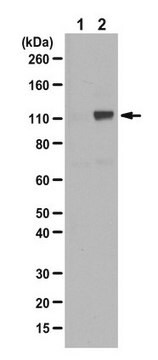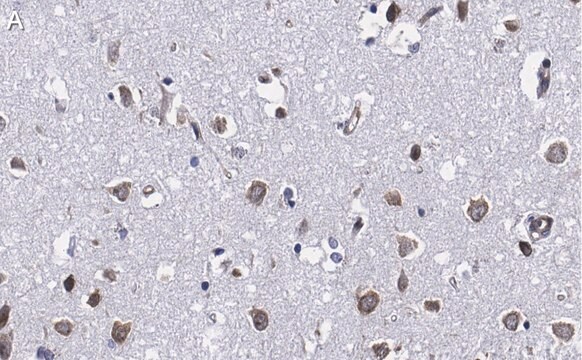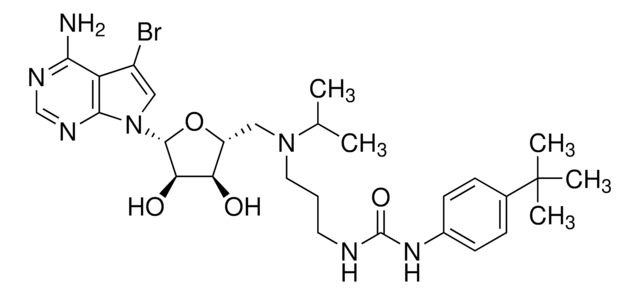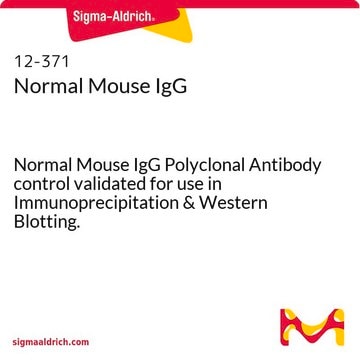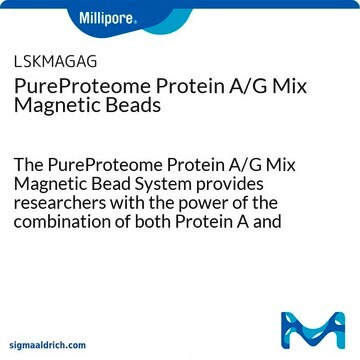04-078
Anti-phospho-Androgen Receptor (Ser81) Antibody, rabbit monoclonal
culture supernatant, Upstate®
Synonym(s):
Anti-AIS, Anti-AR8, Anti-DHTR, Anti-HUMARA, Anti-HYSP1, Anti-KD, Anti-NR3C4, Anti-SBMA, Anti-SMAX1, Anti-TFM
About This Item
Recommended Products
biological source
rabbit
Quality Level
antibody form
culture supernatant
antibody product type
primary antibodies
clone
monoclonal
species reactivity
human
manufacturer/tradename
Upstate®
technique(s)
western blot: suitable
isotype
IgG
NCBI accession no.
UniProt accession no.
shipped in
wet ice
target post-translational modification
phosphorylation (pSer81)
Gene Information
human ... AR(367)
Specificity
Immunogen
Application
Quality
Target description
Physical form
Legal Information
Not finding the right product?
Try our Product Selector Tool.
Storage Class Code
10 - Combustible liquids
WGK
WGK 1
Certificates of Analysis (COA)
Search for Certificates of Analysis (COA) by entering the products Lot/Batch Number. Lot and Batch Numbers can be found on a product’s label following the words ‘Lot’ or ‘Batch’.
Already Own This Product?
Find documentation for the products that you have recently purchased in the Document Library.
Our team of scientists has experience in all areas of research including Life Science, Material Science, Chemical Synthesis, Chromatography, Analytical and many others.
Contact Technical Service